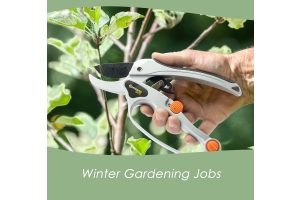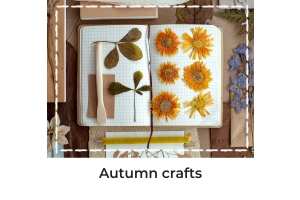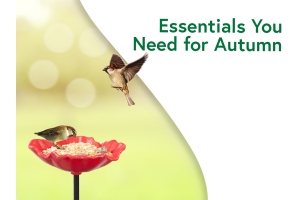How to Care For Your Garden In Winter

The seasons are changing, and the temperature is dropping, which means we’re getting to that chilly time of year. As winter approaches, it’s important to remember that we need to prepare our garden for next year.
As the rain, snow and ice approaches, the last thing we want to do is go out and sort the garden. That’s why it’s so important to prepare your backyard before the weather changes. Here are some of the things that you can do to prepare your garden for winter.
Empty your gutters
While autumn is a beautiful month, with trees full of red and orange leaves, it can also bring trouble for your house. The falling leaves from the trees in your garden or near your home can clutter and block drains and gutters. There’s nothing worse than a blocked drainpipe as heavy rain and snow approaches.
Try to set some time aside at the weekend or hire a handyman to give your pipes a thorough clear out before severe weather appears. Blocked drain pipes can cause water to leak pour down the side of your house, resulting in damp and mould. Not only is this bad for your health, but it can also be expensive to fix, so preventative action is key here.
Feed the birds
Winter is a tough time for people and wildlife alike. Why not give our feathered friends a fighting chance to make it through the miserable winter months? Buy some bird feeders and nesting boxes to help feed wild birds in winter and shelter them from cold, harsh weather.
Suet balls and peanut feeders are perfect high-energy treats that will help keep wild birds warm and strong through to spring in the new year. We’re sure they will return in the warmer months to fill your garden with lovely bird song.
Prepare your springtime bulbs and seeds
Nothing beats a dark, grey winter like the emerging bloom of springtime flowers. Winter is the best time to create a plan for your garden. Consider what kinds of flowers, plants, fruits or vegetables you want to grow throughout the new year. Once you’ve decided, you can start purchasing seeds and bulbs for planting in spring.
In some cases, you can even start planting some of your favourite spring flowers now so they can emerge along with lighter days and warmer climate. This also depends on the weather of course. If you have recently had heavy snow, avoid planting your new bulbs and seeds as this will dramatically reduce their chances of survival. If it does snow, avoid walking on your lawn as well because this may cause damage to your grass.
Protect your garden furniture
Garden furniture can be expensive, so why risk damaging it? Many garden seats come with cushions which are sure to get damp from the cold, wet weather. Make sure any fabric-based objects are taken inside – whether that’s in your home, garage or shed.
For bigger pieces which aren’t as easy to move, purchase a furniture cover. This will keep your garden items protected from rain and snow. When spring comes along, simply remove the cover and enjoy sitting out in the sun.
If you don’t think the weather will get bad any time soon, take some time to clean and treat your garden furniture. All wooden furniture needs to be cleaned once a year to maintain its quality, but softwood like pine and cedar needs to be treated with preservative. Similarly, iron and steel furniture should also be cleaned annually. If you discover any spots of rust, treat the area to keep your furniture in decent shape.
Once you have washed and treated your garden furniture, move it to a sheltered space in your garden if possible. If the item must remain on your lawn, place a slab under each leg to protect it from the wet grass below.
Prune your plants
Give your plants a fighting chance to make it through winter. Prune your plants in winter and take away dead leaves, stems and flower heads so your plants can conserve their energy instead of trying to revive brown leaves and wilting petals. This isn’t just a tip for winter! Use tools like shears and secateurs to regularly prune your plants, and give your plants a boost and see them bloom fuller and live longer.
Winter is a useful time to prune your garden because the fallen leaves and bare branches make it much easier to spot signs of disease – and makes it easier to remove worrying areas. Try to avoid pruning diseased branches when it’s very wet outside as this can cause the disease to spread.
Everything you need to care for your garden
Are you and your garden prepared for winter? Make sure you wrap up warm before you venture out into your yard and stay safe on icy and wet surfaces. Explore our great selection of gardening essentials, from thermal gardening gloves to ice treads to gardening hand tools!








